mental illness
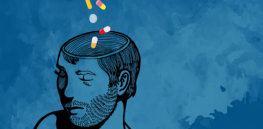
How do antidepressants work? We still don’t know
[A]bout a third of Americans are showing signs of depression or anxiety, according to the U.S. Census Bureau. That’s about ...

‘A radical idea’: Could a single factor be responsible for all mental illnesses?
What are the roots of mental illness? In the hope of finding an answer, scientists have piled up an enormous ...
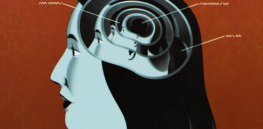
No root cause: What if mental health symptoms are the actual disease?
“In the prevailing understanding of mental disorders, the premise is that an underlying cause exists,” says Sverre Urnes Johnson, associate ...

Dark humor memes about suicide, death and isolation may help depressed people cope with their own problems
Memes are a simple way for people suffering from depression to share their experiences ...

‘Extreme difficulty’ trusting past experiences may be key factor for people with OCD, study says
Often, the human brain can overcome worries and fears by casting the mind back to past experiences that have worked ...

Treating obsessive compulsive disorder in just 4 days? Researchers tout intensive method
Psychologists and professors Gerd Kvale and Bjarne Hansen have developed a treatment program that helps patients get rid of their ...
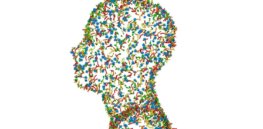
Chasing links between mental illness and microbes living in our guts
“If you would have asked a neuroscientist 10 years ago whether they thought the gut microbiota could be linked to ...

‘I’m not me’: Rare depersonalization disorder leaves patients feeling disconnected from their bodies
I would stare at my hands and think, “I’m not me.” No matter where I was, in the middle of ...

Virtual reality could transform the way we treat anxiety disorders, chronic pain and Alzheimer’s
Experts used to worry that virtual reality (VR) would damage our brains. These days, however, VR seems more likely to ...

Mad genius and genes: Are highly creative people more likely to suffer mental illness?
The idea of the "creative madman" (or woman) has persisted throughout history with Vincent Van Gogh as Exhibit A. Science ...
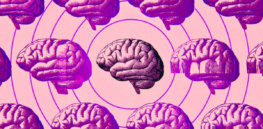
Understanding how ketamine helps the brain deal with depression
The promise of ketamine, an anesthetic drug primarily used at sub-anesthetic doses to either manage severe pain or send recreational ...

This funny-looking helmet could treat depression by ‘rewiring’ the brain
[Recent] weeks have been frenetic for Bre Hushaw, who is now known to millions of people as the girl in ...

Challenging the notion that people with ‘dark personalities’ are more successful
The dark side of human personality has long fascinated the public and psychologists alike. Research has linked unpleasant traits such ...

Vulnerability to mental illness may have given humans an evolutionary advantage
Nearly one in five Americans currently suffers from a mental illness, and roughly half of us will be diagnosed with ...

Why psychiatrists should stop ‘looking the other way’ when confronted with faked mental illness
The act of feigning illness for personal gain, or malingering, is far more widespread than the public might suspect ...

Insomnia linked to neuropsychiatric disorders rather than ‘sleep regulation’, genetic studies show
[T]wo studies published [March 11] in Nature Genetics provide first peeks at the biological basis of insomnia, implicating specific brain regions and ...
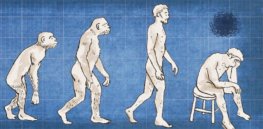
‘Good Reasons for Bad Feelings’: Understanding evolution’s role in anxiety, depression and making us human
[In] the thought-provoking Good Reasons for Bad Feelings, [evolutionary] psychiatrist Randolph Nesse offers insights that radically reframe psychiatric conditions. In his ...

Breaking down the ‘scientific and statistical sins’ behind reporting on marijuana science
A new book and New Yorker feature are filled with cherry-picked data, oversimplified studies, and scientific errors ...

Nearly half of major depression episodes could be prevented, studies show
While there are many effective treatments for depression, including medications and psychological therapies, the rate of depression is not going ...

‘Software’ differences between monkey, human brains could explain our susceptibility to mental illness
Neuroscientists have for the first time discovered differences between the ‘software’ of humans and monkey brains, using a technique that ...
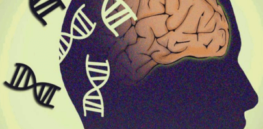
Geneticists seek key to better understanding, treatment of schizophrenia
What can studying the human genome teach us about the origins and treatments for psychiatric diseases like schizophrenia? ...

Childhood antibiotics use linked to higher risk of mental illness in study
[Antibiotic] overuse can help create bacterial superbugs resistant to future antibiotics. But a new study published [December 5] in JAMA Psychiatry suggests ...

How female psychopaths differ from their male counterparts
It is important to keep in mind that psychopathy is a personality disorder. As such it is classified as a mental illness, and ...

As arguments rage over the sources of transgender identity, science weighs in
Discussing gender dysphoria and brain differences in transgender populations ...

How we can improve mortality rates for people with mental illnesses
[P]eople with serious mental illness die 10 to 25 years earlier than the general population. It’s not difficult to understand why. Even ...

Drugs for mental disorders: Why better access to services ‘will likely make things worse’
To reduce the rising burden of mental disorders around the world, the Lancet Commission on Global Mental Health and Sustainable ...

Was a gene mutation responsible for bigger human brains?
One of the major features that distinguish humans from other primates is the size of our brains, which underwent rapid ...

